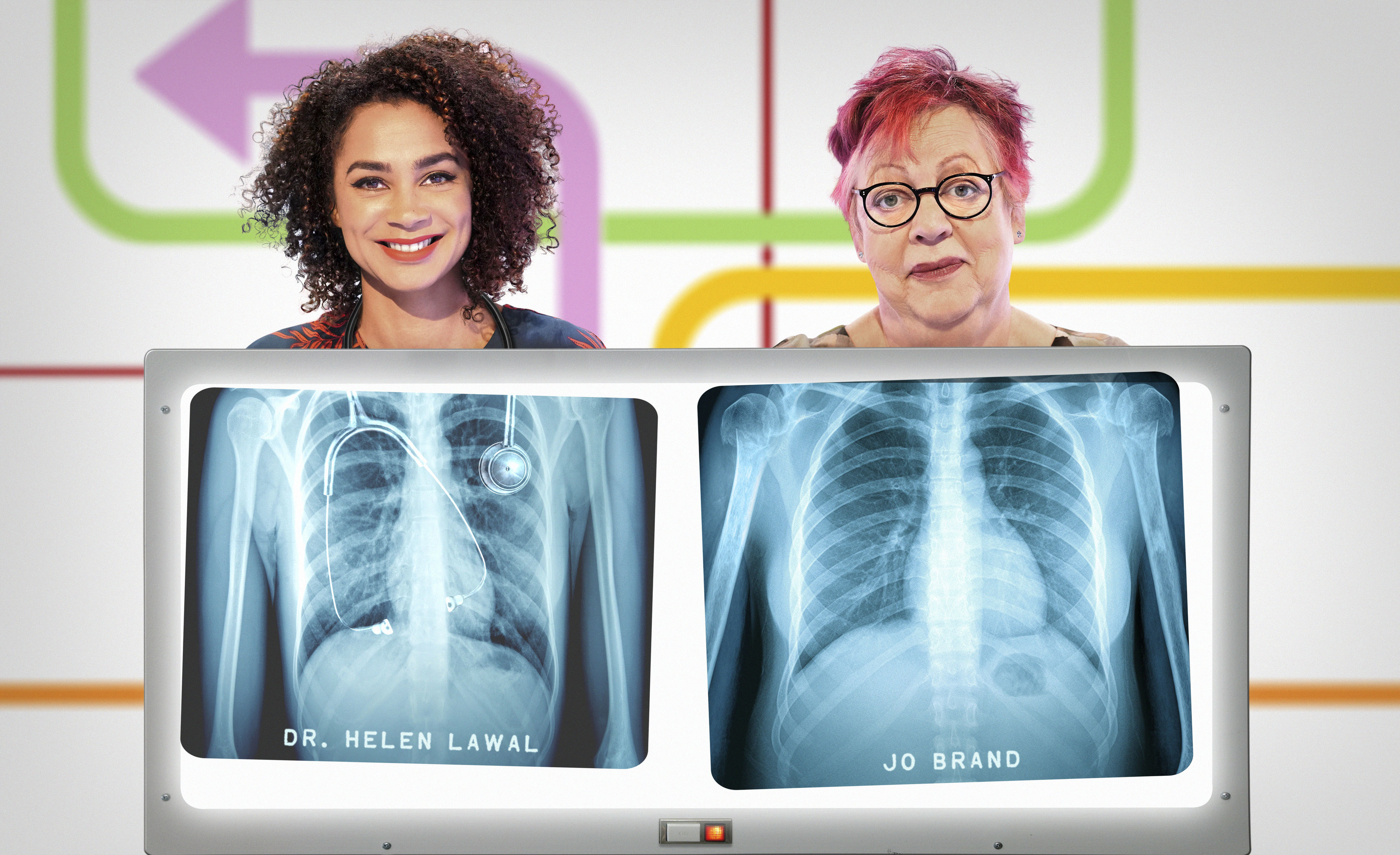
WHEN most TV presenters finish filming a show they might enjoy putting their feet up – Helen Lawal heads off to save lives.
Helen is a GP and it’s straight back to seeing patients at a busy London surgery.
But the day job and the telly job combine in a new five-part quiz show with a difference, Britain’s Best Junior Doctors, being screened this week as the NHS turns 70.
Hosted by Jo Brand, it’s a mix of two of TV’s most popular formats, medical and quiz shows.
And Helen, who’s well-known from co-presenting How To Stay Well and Food Unwrapped, is the expert on hand to give a verdict or explain a medical condition.
“It’s a bit like University Challenge but with two teams of junior doctors,” said Helen, who grew up in Yorkshire before moving to London for her medical training.
“They are really put through their paces, including rounds set in a waiting room and an operating theatre.
“They also have a round where they have one minute to diagnose someone in a GP surgery. Those are real patients who volunteered to take part.
“Obviously a minute isn’t a lot of time, so it’s really putting their skills to the test, about getting a family history, and asking the right questions to help them make the correct diagnosis.
“It was amazing how many people were happy to come forward and talk about their conditions.”
Helen will be on hand to provide reassurance and insight and she’s hopeful that fellow GPs won’t be inundated with queues of patients the following morning feeling they may have something they saw on the show the previous night.
As well as plenty patients volunteering to share their medical histories, there was no shortage of young docs willing to put their reputations on the line in front of millions.
“As doctors, we’re used to being tested,” explained Helen.
“You get tested every few months, and the exams continue for years after you’ve qualified.
“We’re very used to having our knowledge tested, but I still think it was brave to do it on a stage like this.
“Having said that, they are used to having to make quick decisions and it was nice to see them thrive.”
Helen has carved out a successful career in TV and, rather than being a distraction and taking her away from her first love, she insists it is providing a welcome balance.
“I recognised early on that when you have a career in medicine it’s important to do other things.
“With this I’m doing my day job on TV and I can get health messages out there.
“And I’ve really taken to being on TV. It’s funny because, although I’m someone who’s quite anxious about what people think of me and want to create a good impression, I feel remarkably relaxed in front of the camera.
“Coming into the surgery keeps you grounded as it’d be easy to get carried away with the travelling and all the wonderful things I get to do.
“And I feel revitalised and able to give more to my patients. You have to be very careful as a GP when you’re doing 50 or 60 hours a week to look after your mental health and be aware of burnout.
“Having something else to focus on helps with that.”
As someone on the front line of medicine, Helen is ideally placed to give an insider’s view of a doctor’s lot.
And she has concerns.
“I’d really like to see a drive to recruit more doctors,” adds Helen.
“I do worry that with the increasing requirements to get into medical school we’re going to lose people who are passionate but are maybe less academic.
“We need a mix of people and I fear we may be putting off people who have a lot to give.
“Yes, you need a depth of knowledge and analytical thinking, but there is a whole other dimension, the empathy and the bedside manner.
“You need the ability to break the news to someone about their cancer or tell someone a loved one has passed away.”
Britain’s Best Junior Doctors, Mon, BBC2, 7.30pm.

Enjoy the convenience of having The Sunday Post delivered as a digital ePaper straight to your smartphone, tablet or computer.
Subscribe for only £5.49 a month and enjoy all the benefits of the printed paper as a digital replica.
Subscribe